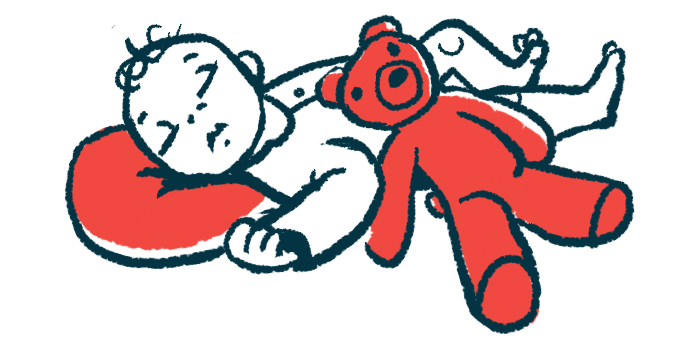Add SMA to Newborn Screening in Scotland, Experts in Country Say
Written by |

A group of healthcare professionals involved in the diagnosis and care of people with spinal muscular atrophy (SMA) in Scotland, and in research into the rare genetic condition, is calling for the addition of SMA to the list of diseases included in the country’s free newborn screening (NBS) program.
“Any possibility to identify SMA patients before the onset of symptoms, and hence begin treatment as early as possible, should be taken advantage of,” these experts wrote in a letter published in the Scottish Medical Journal.
That letter, “A call to introduce newborn screening for spinal muscular atrophy (SMA) in Scotland,” explains the experts’ rationale, and the benefits of NBS for SMA.
Their advocacy follows a similar call by the UK SMA Newborn Screening Alliance, which delivered to the country’s government a petition signed by more than 11,000 people asking for SMA to be added to the U.K.’s National Health System (NHS) newborn screening program.
In response to the petition, the government said that evidence for SMA NBS will be reassessed this year by the UK National Screening Committee (UK NSC), which advises the NHS.
The leading genetic cause of death in infants and children, SMA affects 1 in every 6,000 to 10,000 live births. It is caused by a deficiency of SMN, a protein essential for motor neuron and muscle health, due to mutations in the SMN1 gene.
Since late 2016, three disease-modifying therapies for SMA — Biogen’s Spinraza (nusinersen), Novartis’ Zolgensma, and Roche’s Evrysdi (risdiplam) — have become available in several countries, including the U.K. All of these therapies work by increasing the levels of SMN.
The availability of such therapies and the proven importance of early detection and treatment in preventing lifelong disability prompted the start of SMA NBS programs in a number of countries.
Newborn screening, as the name suggests, is done shortly after a child is born and screens for mutations known to cause rare but serious diseases. As such, it can identify infants with SMA before any symptoms become apparent — a time when treatment initiation has been shown to result in significantly better outcomes.
Notably, SMA was added to the U.S. Recommended Uniform Screening Panel for newborns in 2018, and 91% of newborns in the country are already screened for the disease.
The European Alliance for Newborn Screening for Spinal Muscular Atrophy last year also asked all countries across that continent to introduce routine NBS for SMA by 2025. The alliance includes European patient organizations, academics, and members of the pharmaceutical industry.
Since then, SMA screening has been approved in Germany, Norway, the Netherlands, Slovenia, Poland, and Belgium. In Belgium, the pilot NBS program has transitioned into an official, government-run program spanning the country’s southern part.
In Scotland and the rest of the U.K., routine NBS for SMA is not in place, even though the gene therapy Zolgensma is available to U.K. patients not only after symptom onset, but also before the appearance of signs of the disease (pre-symptomatic patients).
However, in England, the therapy’s availability is limited to a managed access program, and “therefore not considered routine care,” the SMA experts wrote in their letter. This lack of a fully approved therapy for pre-symptomatic patients in England has been stated by the UK NSC as one reason for not approving NBS for SMA at a United Kingdom-wide level.
But this means that “Scottish SMA patients and their families are being denied the possibility of accessing NBS, and potentially much better clinical outcomes, due to decisions being taken and applied at the UK-wide level,” the health professionals wrote.
While the authors recognized the financial implications of implementing NBS for SMA, they believe that “all of the necessary data, evidence, and therapeutic approvals are in place to justify the inclusion of SMA on NBS programs in Scotland.”
“The inclusion of NBS for SMA would provide the best possible quality of life for SMA patients and their families, whilst maximizing the (not insignificant) return on investment that society makes in providing access to SMN-restoring therapies,” the experts concluded.





